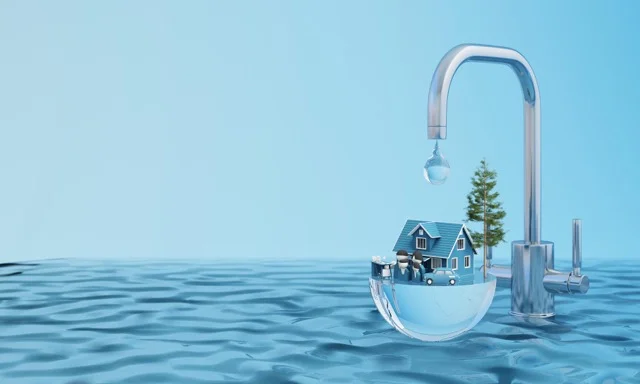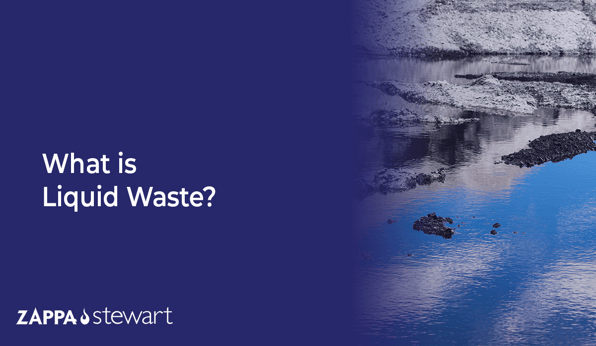What Does Reclaim Waste Do?
What Does Reclaim Waste Do?
Blog Article
4 Simple Techniques For Reclaim Waste
Table of ContentsRumored Buzz on Reclaim WasteThe Ultimate Guide To Reclaim WasteReclaim Waste for BeginnersReclaim Waste Things To Know Before You Get ThisReclaim Waste Fundamentals Explained
Discover the kinds, events, and types of liquid waste. Residential sewage waste refers to the waste and items from a household septic system. This sort of waste is developed by people in homes, schools, and other structures. This only includes sewage-disposal tanks that have a drainpipe area. The appropriate monitoring and disposal of residential sewage waste need liquid waste to be moved to a sewer treatment plant where the proper methods and devices are applied to purify and get rid of waste.
Business waste typically includes prospective threats, such as combustible materials or a combination of fluid and solid waste items, and requires an advanced and in-depth disposal process. The disposal of commercial waste commonly involves the filtering of waste prior to transport to guarantee safe and correct disposal. Hazardous waste is developed from byproducts and overflow of commercial procedures and manufacturing.
This sort of waste can not make use of the exact same sewage monitoring transportation or procedures as septic or industrial fluids. The commercial waste administration process calls for the examination and testing of fluid waste prior to it undergoes the disposal procedure (liquid waste disposal). Overflow waste is the fluid waste that comes from overflow and excess stormwater in highly populated areas or cities
Runoff waste can cause contamination and flooding if not managed effectively. Find out more concerning sewer cleansing and waste administration. Making certain correct waste management can prevent disasters and decrease ecological damage. Both people in household settings and experts in business or manufacturing industries can profit from comprehending the processes and regulations of liquid waste administration.
The Of Reclaim Waste
Call PROS Providers today to find out about our waste monitoring and disposal solutions and the appropriate ways to look after the liquid waste you generate.
(https://www.pageorama.com/?p=reclaimwaste1)This supposed 'wastewater' is not only a vital resource but, after treatment, will be launched to our land, waterways or the ocean. Made use of water from toilets, showers, bathrooms, kitchen area sinks, washings and industrial procedures is understood as wastewater.

water used to cool down machinery or tidy plant and equipment). Stormwater, a form of wastewater, is overflow that flows from farming and city locations such as roofs, parks, gardens, roadways, courses and rain gutters right into stormwater drains pipes, after rain. Stormwater streams neglected straight to neighborhood creeks or rivers, at some point getting to the sea.
Unknown Facts About Reclaim Waste
In Queensland, the majority of wastewater is dealt with at sewer therapy plants. Wastewater is carried from domestic or industrial sites via a system of sewage systems and pump stations, called sewerage reticulation, to a sewage treatment plant. Regional governments develop, keep and run most sewage therapy plants. Operators are accredited under the Environmental Security Act 1994 to release treated wastewater at an appropriate ecological requirement right into rivers.
The Division of Natural Resources recommends neighborhood federal governments concerning handling, operating and preserving sewerage systems and treatment plants. In unsewered locations, neighborhood federal governments might call for homeowners to set up individual or household sewer therapy systems to treat domestic wastewater from toilets, kitchens, bathrooms and washings. The Division of Natural Resources authorises using house systems when they are confirmed to be efficient.
Many stormwater receives no therapy. In some brand-new neighborhoods, treatment of some stormwater to get rid of trash, sand and gravel has actually begun using gross toxin catches. Wastewater treatment takes place in 4 stages: Gets rid of solid matter. Bigger solids, such as plastics and other items mistakenly discharged to sewers, are gotten rid of when wastewater is passed through displays.
Wastewater then streams into big tanks where solids clear up and are removed as sludge. Oil and scum are skimmed from the surface area. Utilizes little living organisms recognizes as micro-organisms basics to break down and remove staying liquified wastes and fine fragments. Micro-organisms and wastes are incorporated in the sludge. Gets rid of nitrogen and phosphorus nutrients that could trigger algal blossoms in our waterways and endanger marine life.
What Does Reclaim Waste Mean?
Nutrient removal is not offered at all sewage treatment plants because it needs pricey specialised equipment. Clear fluid effluent produced after treatment may still have disease-causing micro-organisms - liquid waste removal.

This typically indicates wastewater has to be treated or contaminants gotten rid of prior to it can be released to rivers. Many wastewater streams into the sewage system. Under the Act, regional governments provide authorizations and licences for eco pertinent activities (ERAs) entailing wastewater releases that may have a local impact. The division provides approvals and permits to ERAs involving wastewater launches that might have a local or statewide effect.
How Reclaim Waste can Save You Time, Stress, and Money.
Surveillance gives factual information about water high quality and can verify that permit problems are being satisfied. The info gotten via surveillance gives the basis for making water quality decisions.
Report this page